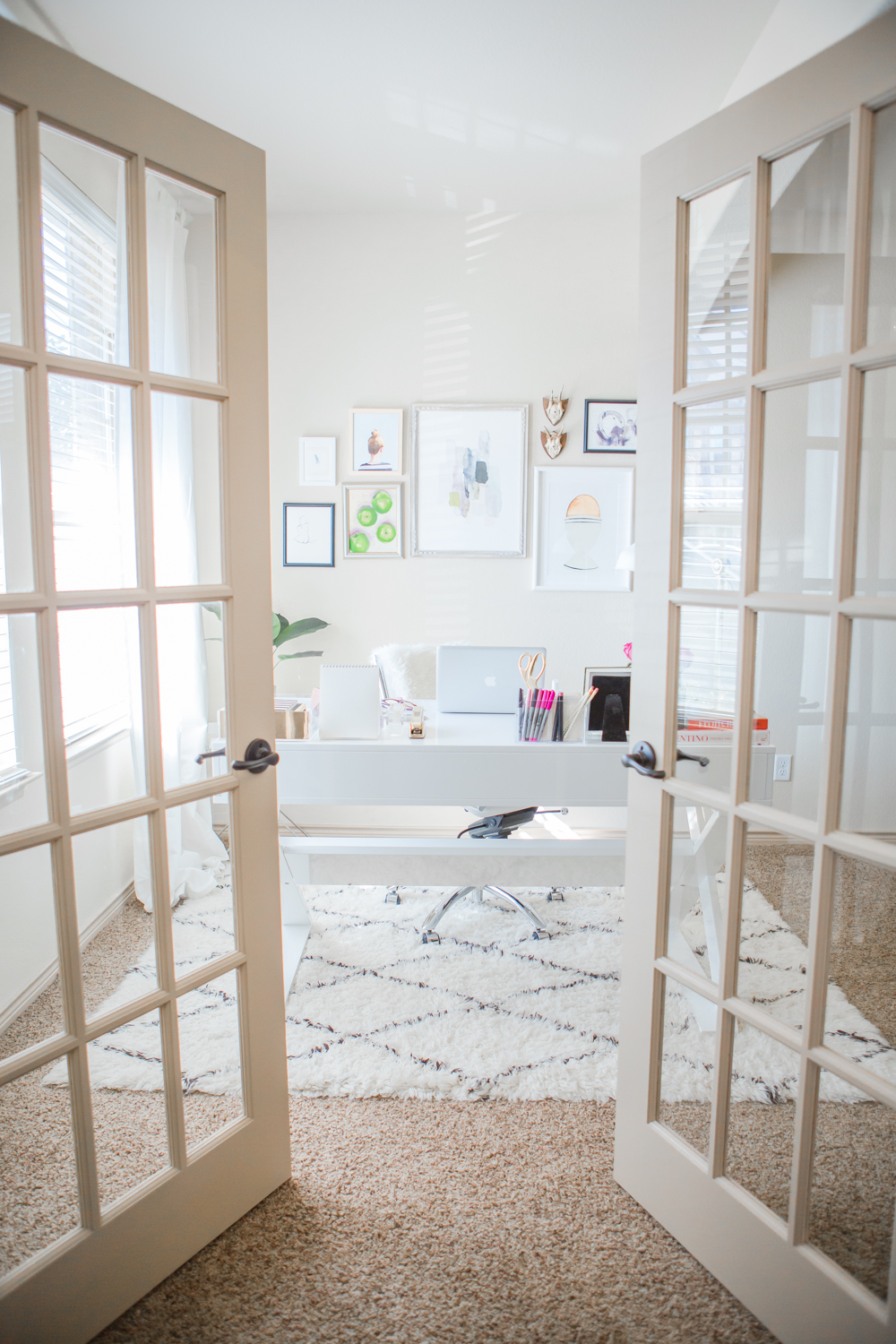 Hi guys. Austin here for another guest post. This post is for the fellow bloggers. Tax season is upon us, so today, we are talking about accounting for bloggers. Because who doesn’t love accounting?
Hi guys. Austin here for another guest post. This post is for the fellow bloggers. Tax season is upon us, so today, we are talking about accounting for bloggers. Because who doesn’t love accounting?
The Teacher Diva started out as a fun personal project. But before long, it became a side-business. Today, it’s Ashley’s full-time job. If you treat your blog like a business, you need to be serious about your accounting. Let’s dive in!
When we realized we were running a business, there was a brief moment of panic. I do not have a formal background in accounting, and I had a lot of learning to do. Our first few years of business were messy and unorganized. I didn’t know much about accounting or even accounting for bloggers. It took a lot of trial and error. But over time, we’ve developed a system that really keeps us organized. When tax season comes, we can now visit our CPA prepared and confident in our numbers.

Disclaimer
Before we dive into the details, know that I am not a licensed tax professional or an accountant. I’m not here to give you “tax advice” necessarily. That should only be done by the pros. I just want to share our accounting for bloggers system to stay organized, in hopes that you can build your own system. So, the first piece of advice:
Always consult a tax professional before making important financial decisions. Hiring an expert is the best decision you can make for your business.
Accounting for Bloggers
Each month, your business will have income and expenses. People will pay you for your services and you will need to buy things to keep your business running. It’s very important to keep track of these transactions by storing your receipts, categorizing the transactions, and reviewing your numbers. Depending on how many transactions you have, keeping track may seem like a monstrous task.
Lucky for you, there are a ton of tools out there to whip your accounting into shape with minimal effort. With a working system, you may only spend an hour each month. Accounting for bloggers can be easy!
Each and every month, you will need to consider how to tackle:
- Saving your receipts
- Documenting your transactions into a book keeping system
- Reviewing your finances to check the health of your business
Then after each year, you will need to take all of this information to your CPA to submit your yearly income taxes.
Here’s how we tackle it.


Receipts
Keeping receipts for your business expenses is important. Receipts give you a record of what was purchased. If the IRS ever questions your tax return through an audit, having organized receipts will be a life saver. Receipts are also a point of reference for your transactions. If you ever question your book keeping, the receipt can keep your numbers straight.
While you could just hand over a shoebox full of receipts to your book keeper each month, there is a better way. It’s 2017 and there’s technology to help you tackle this problem.
For our business, we have many different types of expenses. We get receipts both physically and digitally. Some receipts are handed to us, while others are emailed, and some just live associated with an online account.
To keep these organized, we use a digital receipt service. We simply either take a photo of the physical receipt or forward the digital receipt to a special email address and it’s automatically save, processed, and organized. It’s that simple.
There’s actually quite a few services that do this. Personally, we use Wave Accounting because it’s free. Other options I’ve heard good things about are Shoeboxed and Quickbooks Online.
If you prefer paper or physical copies, you can still tackle receipt organization. Simply, make 12 folders for each month of the year. At the end of the week, put all your physical receipts in the folder. Print any digital receipts.
Book Keeping
Book keeping is the process of logging and categorizing the financial transactions of your business. The best piece of advice I can give you regarding book keeping is:
Separate your personal and business financials!
That advice may seem basic, but a lot of people miss this. Starting out, we did not separate our finances, and it really made things complicated. And accounting for bloggers doesn’t have to be that hard.
To separate your finances, make an appointment with your bank to open a new business account. This account will be exclusively used for your business. You may also opt to get a business credit card and/or a savings account. If there is enough interest (pun intended! sorry, I’m not sorry), maybe I will do another post on the finances of blogging. This is a really important matter.
But we are suppose to be talking about book keeping. I veered off course there, but it’s an important prerequisite before any successful book keeping.
Depending on how comfortable you are with accounting, you may opt to hire a book keeper. This person will review all of your transactions and receipts from the month and categorize them. It’s important to categorize transactions, as this will build a picture of your finances. It will also be helpful for your accountant to determine what may be tax deductible. Book keepers are usually not expensive and worth the investment. Many will also help you setup a system like this to keep you organized.
As I mentioned before, we use an online accounting software called Wave Accounting. It’s pretty easy to setup and it’s free. You can link your bank accounts, credit card or PayPal to Wave. This enables Wave to automatically pull in all of your transactions. Wave will make an attempt to automatically categorize the transaction based on who the charge was made to. It’s not 100% accurate and needs some manual intervention. But it’s really easy to categorize your transactions quickly.
The pros may recommend using QuickBooks Online. I haven’t personally used, but it does look like a great alternative.
After you’ve categorized your transactions, you’ll be able to look at the health of your finances in a monthly review.
Monthly Review
Now that you’ve saved all your receipts and documented your transactions, it’s a good idea to sit down and review your finances for the month. How did your net income compare to last month? Did you have any big expenses you need to be mindful of? These and other questions can be answered by generating financial reports.
There are all kinds of financial reports. The most basic of which might be the Income Statement. This reports lays out your revenue against your expenses to tell you how much money you made (or lost) for the month. I review this report each month to determine the health of our business.
If this makes you uncomfortable, your accountant will probably go over these numbers with you each month and answer any questions you may have. It’s always good to seek the counsel of experts in this area.
April 15th
Tax Day! Well, actually Tax Day for the 2016 tax year is April 18th, 2017 because the 15th fell on a Saturday and the 17th is a national holiday. But MOST years, Tax Day is April 15th. This is the day your income taxes are due.
I highly recommend hiring a CPA to do your yearly income taxes. Even if they cost more than TurboTax, they are much better informed to make recommendations about your finances. They often save you more money by finding more tax deductions. Those deduction make your refund go up (or the amount you owe go down). The savings they find will usually outweigh their fee.
Hopefully, you’re now organized and ahead of the curve. You have built a system that works for you. You’ve scheduled an appointment with your CPA well before the tax deadline. You’ve paid your quarterly income taxes throughout the year (another important lesson for another post). You have all of your business transactions documented, categorized, and backed up with receipts. Your CPA, who is a licensed tax wizard, will crunch those numbers and file your federal (and possibly state) income taxes, and you’re done! Congratulations for being an outstanding citizen.
Hopefully, this sheds some light on how to tackle accounting for bloggers. Let us know in the comments if you have questions, other advice, or ideas for another post.

OFFICE DETAILS
Tuscan Moroccan Rug | Desk | Chair | Monogram Business Card Holder | Gallery Wall Art Prints: “Ahoy Painting” , “Going for a Swim”, “Baby Fern”, “Green Apples”, “Humble Egg” , “Melt”, Deer Antlers, “Bun Print”
![]()






Great post! I hope Austin continues to post additional information on the accounting side of blogging. I would like to know what is recommended when starting to blog (acct wise). Do you need a business license? Also, first year there is usually more expenses vs income so how yo prepare for when tax season comes around.
Thanks! I’m glad it was of interest. Business Licenses are another important and expansive topic. (Maybe another post?) There different reasons to choose different licenses, but most bloggers probably fall under a Sole Proprietorship or a LLC.
And regarding having more expenses than income, that means your business had a loss for the year. And that’s ok! Many, many businesses are not profitable at first. Your tax advisor can explain how this would specifically relate to your return. Hope that helps.
Love this! So many great tips + ideas. I use Wave as well–for both blogging and Poshmark. I really love everything they have to offer. xx A.
The Yellow Petunia
Love your blog! 😉
http://www.evdaily.blogspot.com
Thank you, Ewa! xx Ashley
Thanks for the incredibly helpful info! I was thinking about this the other day. Once my blog gets big enough, this will be super helpful!
I love these tips!! This is an excellent blog post 🙂
http://www.pennyanddash.com
Love this post! Too often do bloggers portray their lives as easy and glamorous and us viewers sometimes forget that blogging full time is the same thing as owning a business. I’m sure it’s not easy! Thank you for sharing this 🙂
What a great post. This is really helpful! I am an aspiring blogger and someday hope to take this full time. Keep them coming, Austin!
Sorry, but this post is horribly simple. I’m not sure what has happened to this blog but the new direction has made it stuffy, uppity and boring. I much preferred the more innocent and happier original blog content.
Hi Erica,
Thank you for taking the time to leave your feedback. I agree, this post is not the norm for our blog, but it has been a highly requested topic from my fellow peers and aspiring bloggers. We want to try and give value and respect those requests, so that is why this post was published. I do appreciate you for bringing this to my attention. Feel free to email me (theteacherdiva@gmail.com) if you have suggestions or requests on topics that you would like to see on here. Thank you! xx Ashley
I started taking my blogging seriously this past January, so this is very helpful, Austin! I really hate keeping paper/receipts, but at least I can use Wave to help with it all. I hope to hear more from you about this topic! Thanks so much for taking the time to add value!
She Sweats Diamonds
I’m not a blogger, but I do have a small online business. I started using wave about a month ago and it has made things a lot easier. All of this stuff can be so confusing and hard to figure out. Especially as a *new* small business owner. I hope Austin continues to share more on the business side of things.
hi Ashley I loved your post! but I have a question. your income is for the online sales you redirect to brands? or why do brands pay you for talking about them? I would like to know that it is convenient to have a blog. love kate.